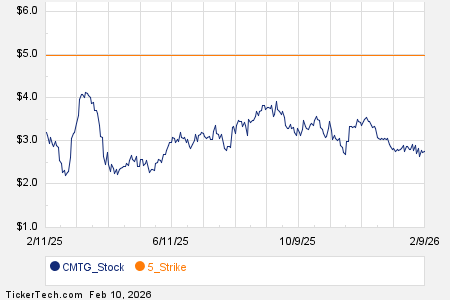Two Tech Stocks Poised for Long-Term Success
So, what defines a bulletproof stock? In my view, it refers to companies with strong fundamentals that are worth holding onto for the long haul — ideally five years or more.
Fortunately, the technology sector is filled with such stocks. Here are two compelling options.

Image source: Getty Images.
1. Spotify Technology (NYSE: SPOT)
First, let’s discuss Spotify Technology.
With a nearly 500% increase since the beginning of 2023, Spotify has certainly created many success stories. However, there is ample opportunity for growth ahead.
Spotify is the leading music streaming service globally. In its latest quarter, which ended on September 30, it reported more than 640 million monthly active users (MAUs), marking an 11% increase year-over-year.
This impressive user count translates to roughly 8% of the global population, and it’s increasingly becoming more profitable. The subscriber count reached 252 million, up 12% from last year. This segment is expanding faster than the total user base and benefits from higher profit margins as compared to ad-supported users.
To illustrate, premium users constitute 88% of Spotify’s revenue, while ad-supported users make up just 12%. Taking a broader perspective, Spotify is thriving in a robust streaming market. Revenue surged by 19% year-over-year, with an operating margin reaching an all-time high of 11.4%.
All in all, Spotify is performing exceptionally, showing no indications of slowing down. This is a stock that investors should keep an eye on.
2. Meta Platforms (NASDAQ: META)
Next up is Meta Platforms.
One compelling reason to consider Meta as a bulletproof stock is its incredible cash-generating ability.
The company stands as a key player in the digital advertising arena, which is a vast market. According to estimates by Statista, the digital ad market is valued at $740 billion and is projected to grow to $965 billion by 2028.
With over 3.3 billion daily active users, Meta capitalizes on its extensive reach to generate around $150 billion in annual ad revenue. A large portion of this revenue translates into profit due to the company’s robust profit margins.
For context, Meta reported net income exceeding $55 billion over the past 12 months, with free cash flow surpassing $52 billion. These figures show impressive growth, increasing by 201% and 146% respectively over the last five years.
This growth is particularly noteworthy as stock prices often reflect profit changes. Meta’s stock price trajectory over the past five years mirrors its financial growth.

META data by YCharts
Furthermore, analysts surveyed by Yahoo! Finance expect Meta’s revenue to grow by 15% next year, reaching $187 billion.
Clearly, Meta is a financial giant. The company’s significant profits and cash flow allow it to return value to shareholders through dividends and share buybacks. For those seeking a solid tech stock, Meta is certainly worth considering.
Seize the Opportunity: Second Chance at Top Stocks
Do you feel like you missed out on the best stocks? There’s a way to catch up.
On rare occasions, our expert analysts suggest a “Double Down” stock recommendation for companies they believe are on the verge of significant growth. If you’ve been hesitant, now might be the perfect time to invest before the opportunity passes.
- Amazon: If you invested $1,000 when we doubled down in 2010, you’d have $23,529!*
- Apple: If you invested $1,000 when we doubled down in 2008, you’d have $42,465!*
- Netflix: If you invested $1,000 when we doubled down in 2004, you’d have $441,949!*
We are currently issuing “Double Down” alerts for three remarkable companies, and this may be one of the last chances to invest.
Explore 3 “Double Down” stocks »
*Stock Advisor returns as of November 11, 2024
Randi Zuckerberg, a former director of market development and spokeswoman for Facebook and sister to Meta Platforms CEO Mark Zuckerberg, is a member of The Motley Fool’s board of directors. Jake Lerch has positions in Spotify Technology. The Motley Fool has positions in and recommends Meta Platforms and Spotify Technology. The Motley Fool has a disclosure policy.
The views and opinions expressed herein are the views and opinions of the author and do not necessarily reflect those of Nasdaq, Inc.






